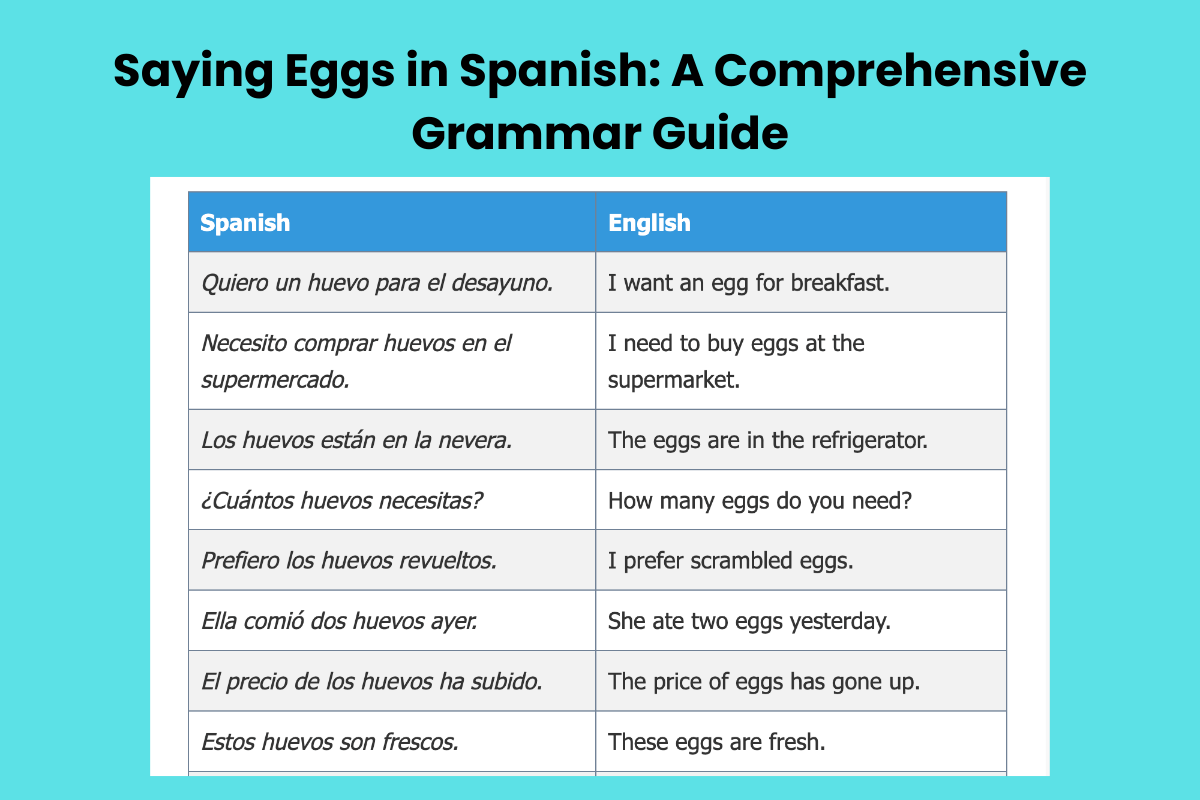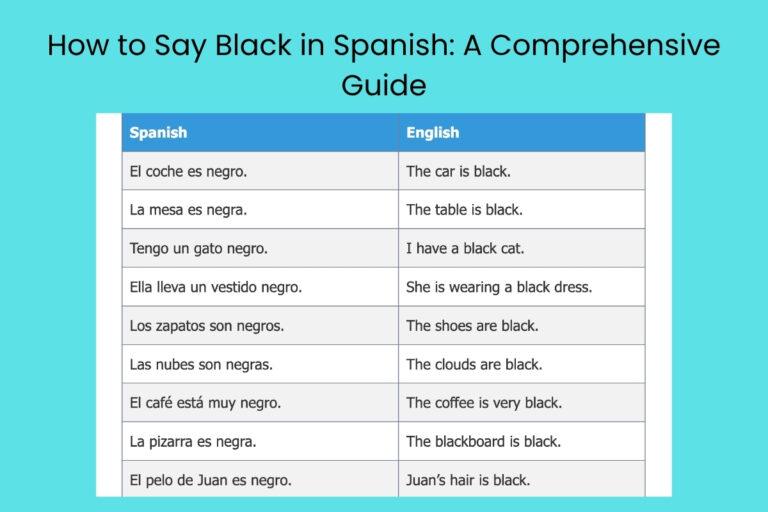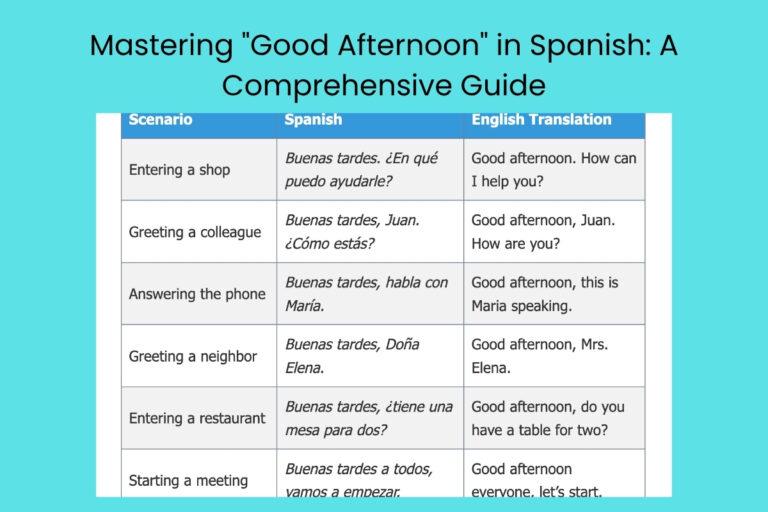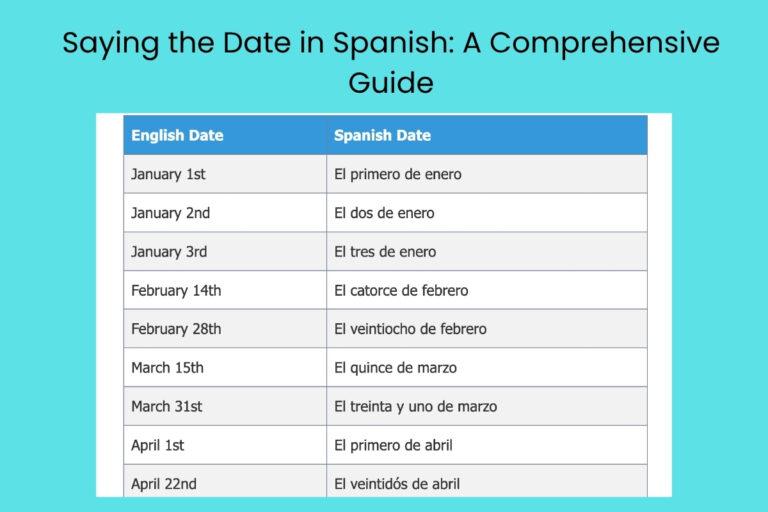Saying Eggs in Spanish: A Comprehensive Grammar Guide
Understanding how to say “eggs” in Spanish and use it correctly in different contexts is crucial for anyone learning the language. This simple word appears in countless everyday situations, from ordering breakfast to discussing recipes.
Mastering its various forms and usages opens the door to more fluent and natural communication. This guide is designed for learners of all levels, from beginners who need to know the basic translation to advanced students seeking to understand nuanced expressions and idiomatic uses.
By the end of this article, you will have a solid grasp of how to confidently and accurately talk about eggs in Spanish.
Table of Contents
- Introduction
- Definition of “Eggs” in Spanish
- Structural Breakdown: Singular and Plural Forms
- Gender Agreement with Articles and Adjectives
- Types and Categories of Eggs
- Examples of Usage
- Usage Rules and Considerations
- Common Mistakes to Avoid
- Practice Exercises
- Advanced Topics
- Frequently Asked Questions
- Conclusion
Definition of “Eggs” in Spanish
The Spanish word for “eggs” is huevos. It is a masculine noun and is almost always used in its plural form, even when referring to a single egg in certain contexts. The singular form, huevo, exists but is less commonly used in everyday speech. Understanding the nuances of when to use the singular versus the plural is essential for mastering its correct usage. The word functions as a noun, referring to the oval or round object laid by a female bird, reptile, or fish, typically containing an embryo. In culinary contexts, it refers to this object when used as food.
The word huevo is derived from the Latin word ovum, which also means egg. This etymological connection is apparent in many Romance languages. The term is used across various Spanish-speaking countries, though regional variations may exist in how it is prepared or used in specific dishes. Its primary function is to denote the edible egg used in countless recipes and culinary traditions. It also appears in idiomatic expressions, adding layers of meaning beyond its literal translation.
Structural Breakdown: Singular and Plural Forms
In Spanish, the singular form of “egg” is huevo, and the plural form is huevos. The pluralization follows the standard rule for masculine nouns ending in -o: simply add -s. However, the usage of the singular form is less frequent than in English. Often, even when referring to a single egg, the plural form huevos is used, especially in culinary contexts or when discussing eggs in general. This can be confusing for English speakers, but it’s an important aspect of Spanish grammar to understand.
The structure is straightforward: huevo (singular) becomes huevos (plural). This simple change affects the agreement with articles and adjectives, as we will see later. For instance, “un huevo” means “one egg,” while “unos huevos” can mean “some eggs” or simply “eggs” in a general sense. The context usually clarifies the intended meaning. Pay close attention to how native speakers use these forms to develop an intuitive understanding of their usage.
Gender Agreement with Articles and Adjectives
In Spanish, nouns have gender (masculine or feminine), and articles and adjectives must agree in gender and number with the noun they modify. Since huevo and huevos are masculine nouns, they require masculine articles and adjectives. Here’s a breakdown:
- Singular: el huevo (the egg), un huevo (an egg), huevo frito (fried egg)
- Plural: los huevos (the eggs), unos huevos (some eggs), huevos fritos (fried eggs)
Notice how the articles el (the, singular masculine) and los (the, plural masculine) change to agree with the number of eggs. Similarly, the adjective frito (fried, masculine singular) changes to fritos (fried, masculine plural). This agreement is crucial for correct grammar. Incorrect gender or number agreement can lead to confusion or sound unnatural to native speakers. Always ensure that your articles and adjectives match the noun in both gender and number.
Types and Categories of Eggs
While the basic translation of “eggs” is straightforward, there are different types and categories of eggs that are commonly referred to in Spanish. Here are some of the most common:
Chicken Eggs
Chicken eggs are the most widely consumed type of egg. In Spanish, they are typically referred to simply as huevos, but you can also specify huevos de gallina to be more precise.
Other Types of Eggs
Other types of eggs are also consumed, though less frequently. These include:
- Quail eggs: Huevos de codorniz
- Duck eggs: Huevos de pato
- Goose eggs: Huevos de ganso
When referring to these less common types of eggs, it’s important to specify the animal they come from to avoid confusion. The phrase huevos de + [animal] is the standard way to indicate the type of egg.
Examples of Usage
To solidify your understanding, let’s look at various examples of how to use “huevos” in different contexts.
Basic Examples
These examples illustrate the basic usage of “huevos” in simple sentences.
The following table shows basic examples of using huevos in sentences:
| Spanish | English |
|---|---|
| Quiero un huevo para el desayuno. | I want an egg for breakfast. |
| Necesito comprar huevos en el supermercado. | I need to buy eggs at the supermarket. |
| Los huevos están en la nevera. | The eggs are in the refrigerator. |
| ¿Cuántos huevos necesitas? | How many eggs do you need? |
| Prefiero los huevos revueltos. | I prefer scrambled eggs. |
| Ella comió dos huevos ayer. | She ate two eggs yesterday. |
| El precio de los huevos ha subido. | The price of eggs has gone up. |
| Estos huevos son frescos. | These eggs are fresh. |
| Voy a cocinar unos huevos. | I am going to cook some eggs. |
| ¿Te gustan los huevos? | Do you like eggs? |
| Tenemos que usar los huevos pronto. | We have to use the eggs soon. |
| Los huevos orgánicos son más caros. | Organic eggs are more expensive. |
| El nido está lleno de huevos. | The nest is full of eggs. |
| Puse los huevos en la cesta. | I put the eggs in the basket. |
| Es importante revisar los huevos antes de usarlos. | It’s important to check the eggs before using them. |
| Los huevos de Pascua son coloridos. | Easter eggs are colorful. |
| Añade dos huevos a la mezcla. | Add two eggs to the mixture. |
| Los huevos de codorniz son pequeños. | Quail eggs are small. |
| Los niños buscan huevos en el jardín. | The children are looking for eggs in the garden. |
| Los huevos están listos para comer. | The eggs are ready to eat. |
| El granjero recoge los huevos cada mañana. | The farmer collects the eggs every morning. |
| No me gustan los huevos crudos. | I don’t like raw eggs. |
| ¿Dónde compras los huevos? | Where do you buy the eggs? |
| Los huevos tienen mucha proteína. | Eggs have a lot of protein. |
| Este plato lleva tres huevos. | This dish requires three eggs. |
| Los huevos estaban rotos cuando los compré. | The eggs were broken when I bought them. |
Cooking and Recipe Examples
These examples demonstrate how “huevos” is used in the context of cooking and recipes.
The following table shows examples of using huevos in cooking contexts:
| Spanish | English |
|---|---|
| Para hacer la tortilla, necesitas tres huevos. | To make the omelet, you need three eggs. |
| Añade los huevos batidos a la sartén. | Add the beaten eggs to the pan. |
| ¿Cómo prefieres tus huevos, fritos o revueltos? | How do you prefer your eggs, fried or scrambled? |
| Esta receta lleva huevos y leche. | This recipe calls for eggs and milk. |
| Los huevos pochados son deliciosos. | Poached eggs are delicious. |
| Para el pastel, necesito seis huevos grandes. | For the cake, I need six large eggs. |
| Bate los huevos con un poco de sal. | Beat the eggs with a little salt. |
| Los huevos rellenos son un aperitivo popular. | Deviled eggs are a popular appetizer. |
| Me encanta el sabor de los huevos benedictinos. | I love the taste of eggs benedict. |
| ¿Has probado los huevos rancheros? | Have you tried huevos rancheros? |
| Los huevos a la flamenca son un plato tradicional español. | Huevos a la flamenca are a traditional Spanish dish. |
| Necesitamos separar las claras de los huevos. | We need to separate the egg whites from the yolks. |
| Los huevos pasados por agua son mi desayuno favorito. | Soft-boiled eggs are my favorite breakfast. |
| Usa huevos frescos para obtener mejores resultados. | Use fresh eggs for best results. |
| Los huevos duros son perfectos para ensaladas. | Hard-boiled eggs are perfect for salads. |
| ¿Quieres huevos con tocino? | Do you want eggs with bacon? |
| La mayonesa se hace con huevos y aceite. | Mayonnaise is made with eggs and oil. |
| Para el soufflé, necesitas huevos batidos a punto de nieve. | For the soufflé, you need egg whites beaten to stiff peaks. |
| Los huevos al plato son muy fáciles de hacer. | Baked eggs are very easy to make. |
| Añade un huevo a la masa para darle más consistencia. | Add an egg to the dough to give it more consistency. |
| Los huevos revueltos con champiñones son deliciosos. | Scrambled eggs with mushrooms are delicious. |
| Prepara unos huevos fritos con patatas. | Prepare some fried eggs with potatoes. |
| El chef utiliza huevos de corral en sus platos. | The chef uses free-range eggs in his dishes. |
| Para esta salsa, necesitas yemas de huevo. | For this sauce, you need egg yolks. |
| Los huevos mollet son un punto intermedio entre los huevos pasados por agua y los huevos duros. | Mollet eggs are an intermediate point between soft-boiled eggs and hard-boiled eggs. |
Ordering Food in a Restaurant
When ordering food, knowing how to specify the type of egg preparation is essential.
The following table provides some example phrases for ordering eggs in a restaurant:
| Spanish | English |
|---|---|
| Quisiera dos huevos fritos, por favor. | I would like two fried eggs, please. |
| ¿Me puede traer huevos revueltos con jamón? | Can you bring me scrambled eggs with ham? |
| Quiero un plato de huevos rancheros. | I want a plate of huevos rancheros. |
| ¿Tienen huevos benedictinos? | Do you have eggs benedict? |
| Me gustaría un huevo a la plancha. | I would like a grilled egg. |
| ¿Cómo vienen preparados los huevos? | How are the eggs prepared? |
| Quiero los huevos poco hechos, por favor. | I want the eggs runny, please. |
| ¿Puedo cambiar las patatas por huevos? | Can I exchange the potatoes for eggs? |
| Tráigame unos huevos con chorizo. | Bring me some eggs with chorizo. |
| ¿Cuál es el plato del día con huevos? | What is the dish of the day with eggs? |
| Quiero los huevos sin sal, por favor. | I want the eggs without salt, please. |
| ¿Ofrecen opciones de huevos orgánicos? | Do you offer organic egg options? |
| Me gustaría probar los huevos a la flamenca. | I would like to try huevos a la flamenca. |
| ¿Puedo pedir medio plato de huevos revueltos? | Can I order half a plate of scrambled eggs? |
| Quiero los huevos con la yema líquida. | I want the eggs with a runny yolk. |
| ¿Tienen huevos de codorniz en el menú? | Do you have quail eggs on the menu? |
| Me puede traer huevos fritos con puntilla? | Can you bring me fried eggs with crispy edges? |
| Quisiera unos huevos escalfados. | I would like some poached eggs. |
| ¿Los huevos vienen incluidos con el desayuno? | Are the eggs included with the breakfast? |
| Me gustaría añadir un huevo frito a mi plato. | I would like to add a fried egg to my dish. |
| ¿Puedo tener los huevos con tocino crujiente? | Can I have the eggs with crispy bacon? |
| Quiero los huevos benedictinos sin salsa holandesa. | I want the eggs benedict without hollandaise sauce. |
| ¿Tienen huevos revueltos con verduras? | Do you have scrambled eggs with vegetables? |
| Me puede traer huevos fritos con arroz? | Can you bring me fried eggs with rice? |
Idiomatic Expressions
“Huevos” appears in several idiomatic expressions in Spanish. Understanding these expressions can add depth to your comprehension and speaking skills.
The following table provides examples of idiomatic expressions with “huevos”:
| Spanish Idiom | Literal Translation | Meaning |
|---|---|---|
| Costar un huevo | To cost an egg | To cost a lot of money |
| Estar hasta los huevos | To be up to the eggs | To be fed up, to be sick of something |
| Ir a freír espárragos | Go fry asparagus | Get lost, leave me alone |
| No ver tres en un burro | Not to see three on a donkey | To not see well (often used humorously) |
| Poner todos los huevos en la misma cesta | To put all the eggs in the same basket | To put all your resources into one venture |
| Tener huevos | To have eggs | To be brave, to have courage |
| Andar pisando huevos | To walk stepping on eggs | To tread carefully, to be cautious |
| Importarle a uno un huevo | To matter to one an egg | To not care at all |
Usage Rules and Considerations
There are specific rules and considerations when using “huevos” in Spanish.
Article Usage
As mentioned earlier, the correct article must be used with “huevos” based on whether you are referring to a specific set of eggs or eggs in general. Use el/los for specific eggs and un/unos for nonspecific eggs or when implying “some.”
Pluralization Rules
The pluralization of huevo to huevos follows the standard rule for masculine nouns ending in -o. This is a consistent rule in Spanish grammar.
Verb Conjugation with “Huevos”
When using “huevos” as the subject or object of a sentence, ensure the verb agrees in number. For example:
- Los huevos están en la nevera. (The eggs are in the refrigerator.)
- Yo quiero huevos para el desayuno. (I want eggs for breakfast.)
Common Mistakes to Avoid
Here are some common mistakes learners make when using “huevos” and how to avoid them:
The following table lists common mistakes to avoid:
| Incorrect | Correct | Explanation |
|---|---|---|
| Yo quiero un huevos. | Yo quiero unos huevos. | Even when wanting just one egg, “unos” can be used. “Un huevos” is grammatically incorrect. |
| La huevo es delicioso. | El huevo es delicioso. | “Huevo” is a masculine noun, so it requires the masculine article “el.” |
| Los huevos está en la mesa. | Los huevos están en la mesa. | The verb must agree in number with the subject. “Huevos” is plural, so the verb should be “están.” |
| Compré un huevo (when buying multiple) | Compré huevos. | It’s more natural to say “Compré huevos” when buying multiple eggs, even if you mean “some eggs.” |
Practice Exercises
Test your knowledge with these practice exercises.
Exercise 1: Translation
Translate the following sentences into Spanish.
The following table lists the sentences to translate into Spanish:
| English | Spanish (Answer) |
|---|---|
| I need to buy eggs. | Necesito comprar huevos. |
| She likes scrambled eggs. | A ella le gustan los huevos revueltos. |
| The eggs are expensive. | Los huevos son caros. |
| He ate two eggs for breakfast. | Él comió dos huevos para el desayuno. |
| Do you want an egg? | ¿Quieres un huevo? / ¿Quieres huevos? |
| These are quail eggs. | Estos son huevos de codorniz. |
| These are fresh eggs. | Estos son huevos frescos. |
| I want fried eggs. | Quiero huevos fritos. |
| How much do the eggs cost? | ¿Cuánto cuestan los huevos? |
| The recipe needs three eggs. | La receta necesita tres huevos. |
Exercise 2: Fill in the Blanks
Fill in the blanks with the correct form of “huevo” and the appropriate article.
The following table lists the sentences to fill in the blanks:
| Sentence | Answer |
|---|---|
| Yo quiero ______ para el desayuno. | Yo quiero un huevo para el desayuno. |
| ______ están en la nevera. | Los huevos están en la nevera. |
| Necesito comprar ______ de codorniz. | Necesito comprar huevos de codorniz. |
| ¿Cuántos ______ necesitas? | ¿Cuántos huevos necesitas? |
| ______ frito es mi favorito. | El huevo frito es mi favorito. |
| Vamos a comer ______ con tocino. | Vamos a comer huevos con tocino. |
| ______ orgánicos son más caros. | Los huevos orgánicos son más caros. |
| Ella prefiere ______ revueltos. | Ella prefiere huevos revueltos. |
| En esta receta se usan tres ______. | En esta receta se usan tres huevos. |
| ¿Te gustan ______? | ¿Te gustan los huevos? |
Exercise 3: Sentence Construction
Create sentences using the following words and phrases with “huevos.”
The following table lists the words to use for sentence construction:
| Words/Phrases | Example Sentence |
|---|---|
| Comprar, supermercado | Tengo que comprar huevos en el supermercado. |
| Desayuno, huevos fritos | Para el desayuno, quiero huevos fritos. |
| Receta, necesita | La receta necesita cuatro huevos. |
| Gustar, huevos revueltos | Me gustan mucho los huevos revueltos. |
| Caros, orgánicos | Los huevos orgánicos son muy caros. |
| Comer, cena | Vamos a comer huevos para la cena. |
| Frescos, mercado | Los huevos frescos son del mercado. |
| ¿Cuántos, preparar? | ¿Cuántos huevos vas a preparar? |
| Tortilla, ingredientes | Los huevos son un ingrediente principal de la tortilla. |
| Cocinar, fácil | Es fácil cocinar huevos fritos. |
Advanced Topics
For advanced learners, let’s explore some more complex aspects of using “huevos” in Spanish.
Regional Variations
While the basic word huevos remains consistent across Spanish-speaking regions, the ways eggs are prepared and consumed can vary significantly. For example, in some regions, huevos rancheros might be a staple breakfast dish, while in others, it may be less common. Furthermore, certain slang terms or idiomatic expressions involving huevos might be more prevalent in specific areas.
Formal vs. Informal Usage
In most contexts, the use of huevos is neutral and appropriate for both formal and informal settings. However, some idiomatic expressions involving huevos can be considered informal or even vulgar, depending on the context and audience. For example, the expression estar hasta los huevos (to be fed up) is generally considered informal and should be used with caution in formal situations.
Frequently Asked Questions
- Is “huevo” masculine or feminine?
Huevo is a masculine noun. Therefore, it requires masculine articles and adjectives, such as el huevo and un huevo.
- When should I use “huevo” vs. “huevos”?
Use huevo when referring to a single egg. Use huevos when referring to multiple eggs or eggs in general, even when you might only want one. In culinary contexts, huevos is often used even when referring to a single egg in a dish.
- How do I say “fried egg” in Spanish?
You can say huevo frito (singular) or huevos fritos (plural). Both are commonly used, but huevos fritos is often preferred, even when referring to just one.
- What is the difference between “un huevo” and “unos huevos”?
Un huevo means “one egg.” Unos huevos can mean “some eggs” or simply “eggs” in a general sense. The context usually clarifies the intended meaning.
- How do I order scrambled eggs in Spanish?
You can say Quiero huevos revueltos, por favor. (I want scrambled eggs, please.)
- Are there any regional variations in the usage of “huevos”?
While the basic word huevos is consistent, regional variations exist in how eggs are prepared and consumed. Some idiomatic expressions involving huevos may also be more common in certain regions.
- Is it appropriate to use “huevos” in formal situations?
In most contexts, yes. However, some idiomatic expressions involving huevos can be considered informal or vulgar and should be used with caution in formal settings.
- How do you say “egg yolk” and “egg white” in Spanish?
Egg yolk is yema de huevo, and egg white is clara de huevo.
- What does “costar un huevo” mean?
Costar un huevo is an idiomatic expression that means “to cost a lot of money.”
- What does “estar hasta los huevos” mean?
Estar hasta los huevos is an idiomatic expression that means “to be fed up” or “to be sick of something.” It is considered informal and should be used with caution.
Conclusion
Mastering the use of “huevos” in Spanish involves understanding its singular and plural forms, gender agreement, and various contexts in which it is used. From ordering food to understanding idiomatic expressions, a solid grasp of this word enhances your communication skills and cultural understanding.
Remember to pay attention to the context, use the correct articles and adjectives, and be mindful of regional variations and formality levels.
Continue practicing with the examples and exercises provided, and don’t hesitate to immerse yourself in real-life conversations to further refine your skills. By incorporating “huevos” into your everyday Spanish, you’ll not only expand your vocabulary but also gain a deeper appreciation for the nuances of the language.
With consistent effort and attention to detail, you’ll confidently and accurately talk about eggs in Spanish in no time.







